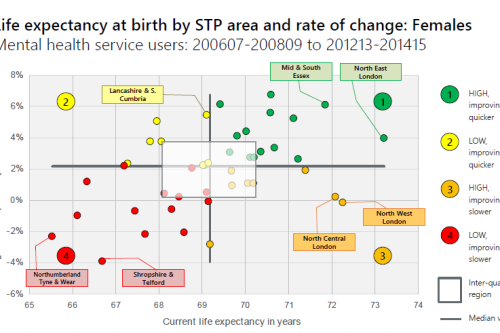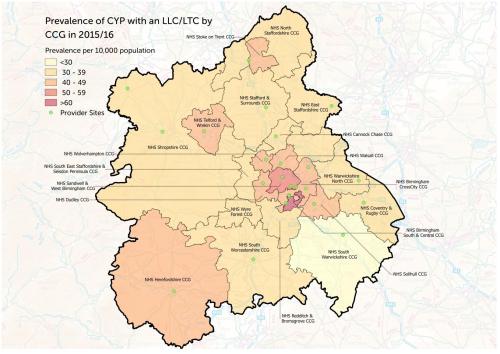
Mind and body: inseparable twins
Jennifer Dixon, Chief Executive of the Health Foundation, reflects on the relationship between mental and physical health and the need for better integration of care.

Tools & templates: Problem structuring
Problem trees and driver diagrams can help you to understand the causes and effects of your problem.
Knowledge sharing
Knowledge sharing is vital for sharing good practice, enabling adoption and spread of innovations, and preventing people from making the same mista
Pre-mortem
The pre-mortem technique was developed by Klein (2007) using ‘prospective hindsight’ to identify risks at the outset of a project.

The Status of Electronic Palliative Care Coordination Systems in the West Midlands
Commissioned by NHS England, this report describes the state of electronic palliative care coordination systems in the West Midlands.

Warp and weft – recognising that physical and mental health are interwoven - By Professor Sir Muir Gray
On World Mental Health Day, we’re delighted to present a guest blog by Professor Sir Muir Gray, the first in a new series of commi

Tools & templates: Other points of view
Use Edward deBono’s ‘Six Thinking Hats’ or consider a wider point of view, to approach a problem or potential solution from different perspectives.
Evaluation of the Dudley New Care Models Programme
This is the final system-wide report from the evaluation.

Tools & templates: Breaking the rules
Generate new ideas to solve a problem – by identifying the underlying assumptions, unwritten rules and thinking that maintain the status quo.

Making the case for integrating physical and mental health services in England - National overview
This is a national overview report of our Making the case for integrating physical and mental health services reporting which took place in July 20
Mental Health and integration: Cinderella or the Ugly Sisters?
Introduction

Tools & Templates: Five Whys
Keep asking ‘why’ to peel back the layers of your problem, until you identify a potential root cause.
Risk and Reward Sharing for NHS Integrated Care Systems
Risk and reward sharing is a simple and attractive concept, offering a commissioner the opportunity to co-opt and incentivise a provid

Do you like to integrate horizontally or vertically? NHS positions examined
Our latest research paper explores the impact of the different options for integration implemented as a result of the Transforming Community Services policy in 2010. This accompanying commentary reflects on potential implications for the current policy drive towards Integrated Care Systems.
Horizontal or Vertical: Which way to integrate?
In 2011, Primary Care Trusts faced a difficult choice. The Transforming Community Services policy required a complete break of commissioner and provider functions. But what should PCTs do with the community health services they delivered; vertically integrate with an acute trust, horizontally integrate with a mental health trust, or set up a stand-alone community trust or Community Interest Company? Seven years on, this report explores the impact this choice had on the level and growth in emergency hospital use in older people and considers the wider implications for the NHS as it develops new models of care and integrated care systems

Palliative and End of Life Care Report for Children and Young People
Commissioned by NHS England, this report describes the the characteristics and levels of resource required by children and young people (CYP) (0-25

Dudley MCP Scenario Analysis
Dudley is one of fourteen vanguard sites nationally developing the Multispecialty Community Provider (MCP) care model.
Understanding future maternity demand and activity using collaborative modelling methods
The Strategy Unit approach to demand and activity modelling has been developed, refined and extensively tested over many years in a variety of heal

Logic Models for Complex Programmes
Logic models have become a standard tool for planning and evaluation.